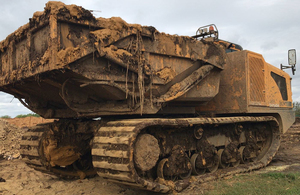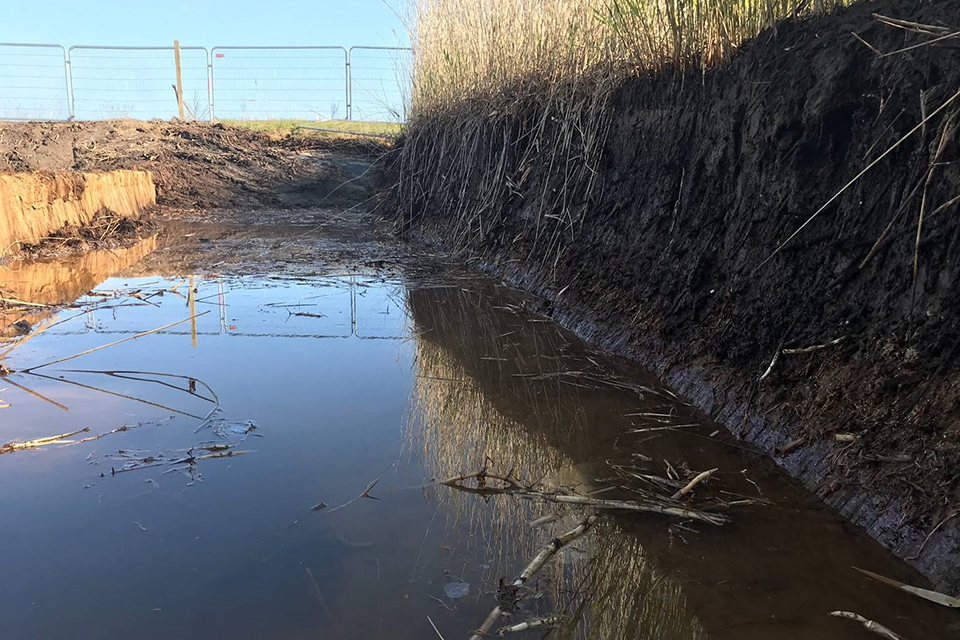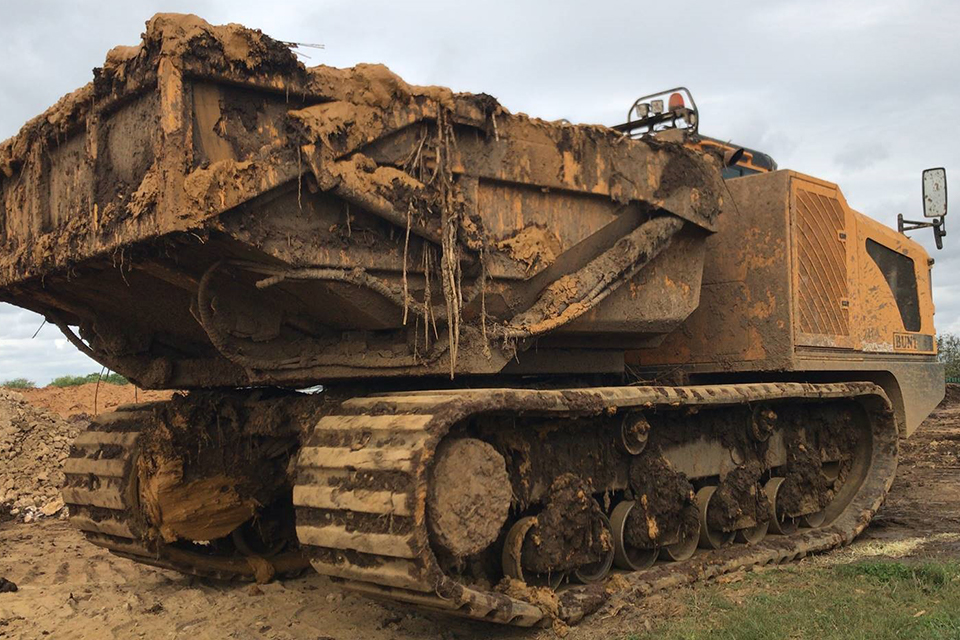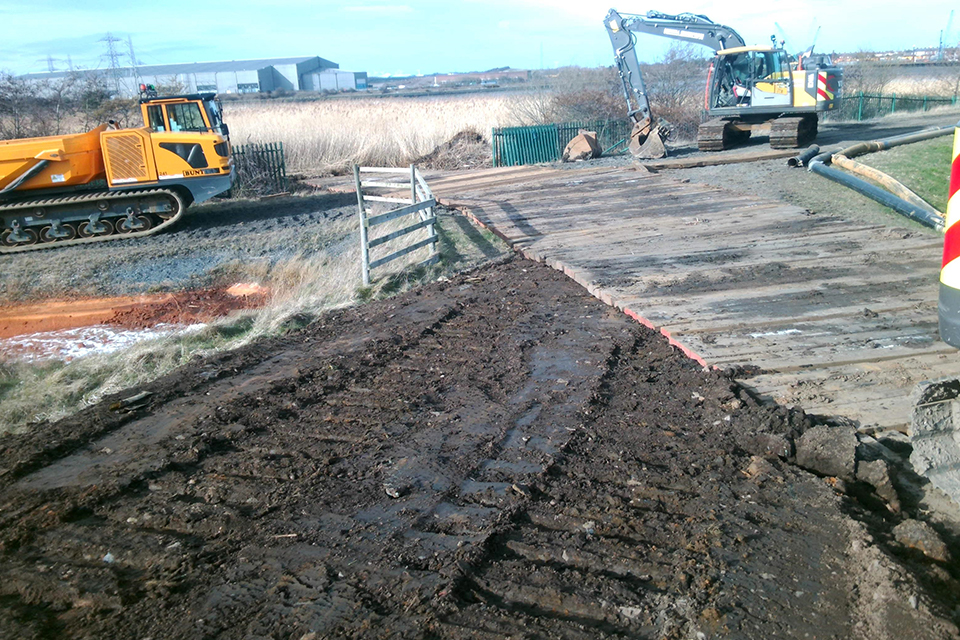New composting drive turns remediation into fertilisation
The Coal Authority is applying a zero waste method to the disposal of its reed bed cuttings by composting the material to divert it away from landfill sites.

Reed beds are used as the final stage of the mine water treatment process where they filter out the remaining finer iron particles (ochre). Over time, the resulting build up of ochre affects their ability to filter particles and they need to be maintained. This involves removing the reed and ochre and replanting the reed bed with either new or transplanted reeds.
This is an expensive operation and historically, the materials were sent to landfill. The materials derived from the Bates mine water treatment scheme near Blyth, in Northumberland, have now for the first time, been sent to a nearby farm. Comprising mainly reed cuttings and ochre residues, on one project, 1,594 tonnes of the material was spread across 50 hectares of farmland to provide cover and enrich the soil. The process, known as land spreading, beneficially adds organic matter to soil and reduces our reliance on manufactured fertilisers and other conditioners and additives.

Stephen Smithson, the Coal Authority’s Contract Service Manager said:
We adopted high efficiency planning and scheduling practices and worked with external partners including the Environment Agency and farmers to see if our by-product streams could become inputs for other processes in order to achieve better sustainability outcomes.
Land spreading these materials offers significant environmental benefits, as well as operational cost savings of up to £1m. Since the raw material was hauled away in bulk, this minimised the need for transportation and helped to reduce our carbon footprint. The product itself serves as an environmentally friendly solution in farming and the move strengthens our commitment to sustainability. Eventually we want to achieve full circularity and this is the first step in that direction.

Prior to launching the refurbishment programme, several models were drawn up to identify maintenance requirements on individual sites. In addition, a costing model was prepared which estimated the required maintenance for each site. These models worked together to deliver the optimum Whole Life Costing (WLC) for the duration of the project. This in turn, enabled the programmes to deliver a flexible business-as-usual approach to suit annual budgets.
At the Bates mine water treatment scheme, the Coal Authority refurbished an 8,000 square metre area of reed beds between 2019 and 2020. To date, a total of 6,700 tonnes of ochre and reed cuttings have been removed and replaced with more than 17,800 new individual reed plants at the end of March 2021.
The Coal Authority uses passive settlement lagoons and reed beds when these are the most ecologically friendly way of treating mine water. In addition to their role in mine water treatment, these constructed wetlands serve as precious habitats for a variety of birds and insects. The preservation of these habitats is a key consideration when we need to remove reed bed cuttings. This is to ensure that the wildlife we have created spaces for is not disrupted by our refurbishments.

Bird surveys conducted by students from Hull University have shown that habitats within our constructed wetlands are used by 12 species of birds listed on the British Trust for Ornithology’s list of Birds of Conservation Concern. This led to an opportunity for the Coal Authority’s Environment Team to work with the RSPB to understand their reed bed management techniques. The team is drawing on the expertise of ecologists to explore new options, approaches and techniques for habitat management that can offer greater efficiency without compromising the long-term viability of these important sites.
For media enquiries contact the community response team
200 Lichfield Lane
Mansfield
Nottinghamshire
NG18 4RG
Email communityresponse@coal.gov.uk
Telephone 0800 288 4211
For emergency media enquiries (out of hours) call: 0800 288 4242.
Only urgent media calls will be attended to.